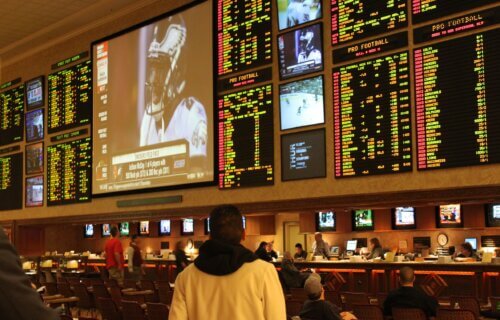NEW YORK — Sports betting is incredibly big business, especially with online betting platforms like FanDuel and DraftKings exploding in popularity in recent years. It’s never been easier to place a bet on your sport, fight, or contest of choice, but just like with any other form of gambling, sports betting is anything but a sure thing. Regular betters routinely agonize over betting decisions, but a researcher from the City College of New York is proposing a novel new way to approach sports wagers.
“The central finding of the work is that the objective in sports betting is to estimate the median outcome. Importantly, this is not the same as the average outcome,” says Jacek Dmochowski, Associate Professor in the Grove School of Engineering at The City College of New York, whose expertise includes machine learning, signal processing, and brain-computer interfaces, in a university release. “I approach this from a statistical point-of-view, but also provide some intuitive results with sample data from the NFL that can be digested by those without a background in math.”
To better describe these results, Prof. Dmochowski laid out a hypothetical example:
“Assume that Kansas City has played Philadelphia three times previously. Kansas City has won each of those games by margins of 3, 7, and 35 points. They are playing again, and the point spread has been posted as ‘Kansas City -10’. This means that Kansas City is favored to win the game by 10 points according to the sports books.”
For bettors, according to the study author, the best decision in this scenario is to bet on Philadelphia (+10), despite the fact they lost the last three games by an average margin of 15 points. Why? The average margin of victory in those games was only seven, which is less than the point spread of 10.

Prof. Dmochowski adds that since bettors’ intuitions may at times be more “linked” to an average outcome rather than the norm, utilizing some data, or ideally a model, is strongly encouraged.
All in all, Prof. Dmochowski says he was actually surprised to see that these theorems have not been presented until now. However, it is quite possible that certain sports books and some statistically-minded bettors have understood at least the basic intuitions being conveyed by this math.
Additionally, other studies have reported findings that gel with what was found by this project, especially work conducted by Fabian Wunderlich and Daniel Memmert at the German Sports University of Cologne. Considering that a recent Pew Research poll found one in five Americans placed a bet on a sporting event in the last year, this research should be of great interest to many bettors.
Prof. Dmochowski has more advice for bettors:
“Avoid betting on matches for which the sports book has produced estimates that are ‘very close’ to the median outcome. In the case of the National Football League, the analysis shows that ‘very close’ is equivalent to the point spread being within one point of the true median.”
“Secondly, understand that the sports books are incredibly skilled at setting the odds. At the same time, they only need to make a small error to allow a profitable bet. So the goal is to seek out those opportunities.”
The study is published in PLoS ONE.
You might also be interested in:
- Super Bowl 2022 betting: Average gambler to throw down $462 on big game
- Free online casino games may turn teens into gambling addicts, study warns
- Sports bars going extinct? 80% of Gen Z watch games on their phone

